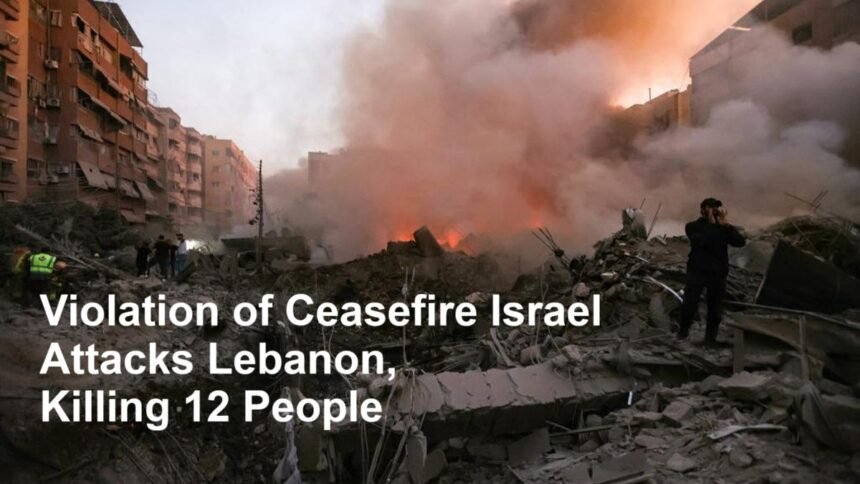Introduction
In a troubling escalation of ongoing tensions in the Middle East, reports have confirmed that Israel launched a military attack on Lebanon, defying a recent ceasefire agreement. The attack, which occurred early this morning, has resulted in the tragic loss of 12 lives and numerous injuries, escalating fears of a broader conflict in the region.
Background of Tensions
The Middle East has long been a hotspot for political and military conflicts, with Israel and Lebanon’s Hezbollah insurgents often engaged in skirmishes that threaten regional stability. Despite numerous attempts at peace, flare-ups continue to punctuate the fragile ceasefire agreements established over the years. Recently, diplomatic efforts appeared to be making progress, with both sides agreeing to de-escalate and avoid further violence.
However, recent reports indicate that despite these diplomatic efforts, a sudden breach of the ceasefire occurred. According to eyewitness accounts and security sources, Israeli forces conducted airstrikes on southern Lebanon, targeting what they claimed were militant positions involved in cross-border attacks.
The Attack and Its Impact
The recent assault took place in the early hours, with reports of several artillery strikes and aerial bombardments. Local residents described a series of loud explosions shaking their homes, and the skies filled with smoke and debris. The attack has tragically resulted in the deaths of 12 people, including civilians and non-combatants caught in the crossfire.
Among the casualties are women and children, underscoring the devastating human toll of the conflict. Many others have been wounded and are receiving medical treatment in nearby hospitals, which are reportedly overwhelmed by the influx of injured civilians.
International Reactions
The international community responded swiftly to the news. UN Secretary-General issued a statement condemning the attack, urging Israel to respect the ceasefire and calling for restraint from all parties. The United Nations Security Council held an emergency meeting to discuss the escalation and to determine appropriate measures to prevent further violence.
Regional players also expressed concern. Lebanon’s government accused Israel of violating sovereignty and warned of the potential for a wider regional conflict. Hezbollah, Lebanon’s powerful Shia militia, condemned the attack and vowed to respond definitively, raising fears of escalation and further hostilities.
The Role of Diplomacy
Diplomats from various countries have called for calm and renewed negotiations to de-escalate the situation. The United States and Egypt, both influential mediators in the region, urged restraint and emphasized the importance of honoring existing ceasefire agreements.
However, this recent breach raises questions about the stability of peace efforts and the difficulty in maintaining truce agreements amid ongoing hostilities. Analysts suggest that continued violence complicates diplomatic efforts and underscores the volatile nature of the conflict.
The Broader Context
This incident is emblematic of the persistent volatility in the Middle East. Tensions often flare up due to a combination of territorial disputes, political disagreements, and deep-seated animosities. The current attack also highlights the risks posed to civilians, who frequently bear the brunt of these conflicts.
Efforts to establish lasting peace remain hindered by mutual mistrust and the complexities of regional politics. While international actors attempt to mediate, the cycle of violence continues to threaten regional stability and security.
Conclusion
The recent Israeli attack on Lebanon, violating the ceasefire and resulting in the deaths of 12 people, underscores the fragile nature of peace in the Middle East. As the region grapples with ongoing tensions, it remains crucial for all parties to recommit to diplomatic solutions and avoid further escalation that could spiral into wider conflict. The international community must continue to pressure for peaceful resolution and accountability to prevent more tragedies from unfolding in the coming days.












